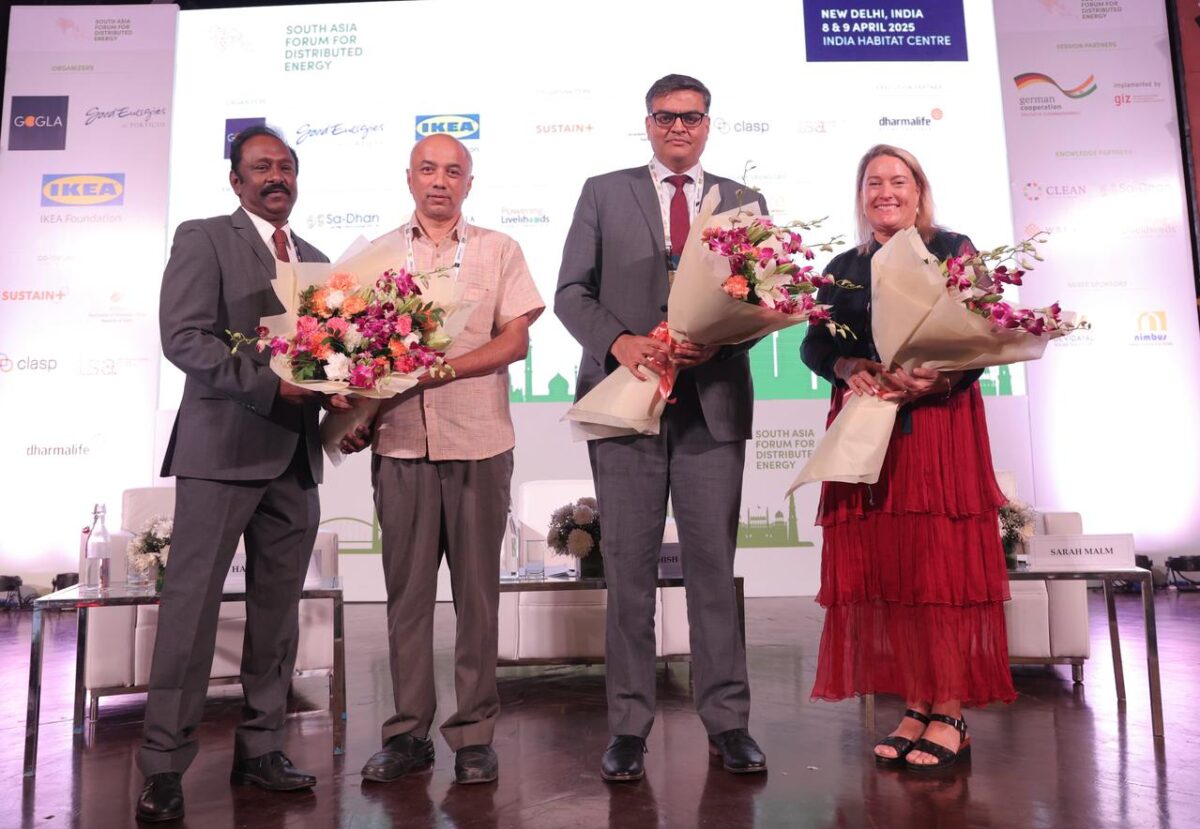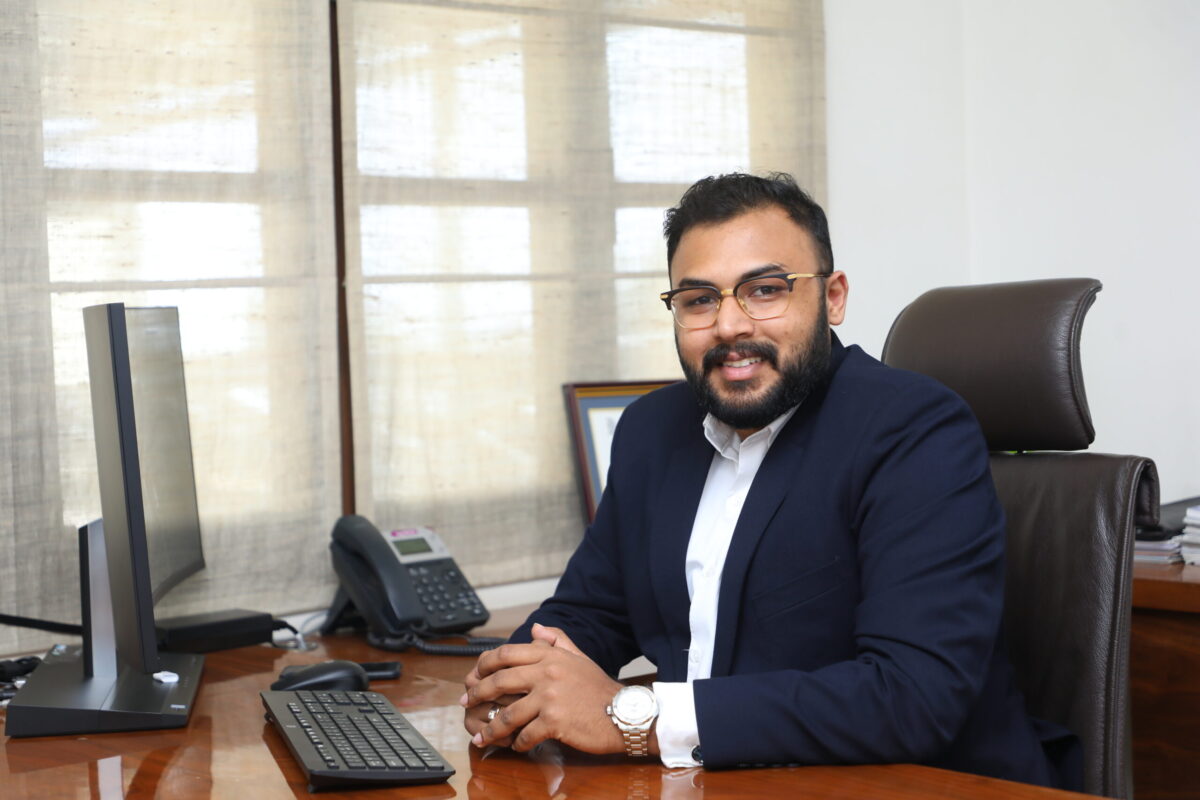Speaking at South Asia Forum for Distributed Energy (SAFDE) 2025 in New Delhi, Ashish Khanna, Director General of International Solar Alliance highlighted that distributed renewable energy (DRE) should serve as an inclusive, community-centric engine for growth, driving both services and job creation. To make it happen, it’s important to put productive-use appliances to the heart of distributed renewable energy.
Khanna said, “We have, to some extent, managed some minigrids and solar system models but I don’t think there has been a very good, huge, scalable business model on productive-use appliances. That means not only a solar pump, it means how a farmer would look at harvesting, post harvesting cold storage, and an entire integrated set of applications in which energy is a key enabler.”
SAFDE 2025 was organized by GOGLA with the support of Good Energies and IKEA Foundation, showcasing how India continues to shape the global discourse on decentralized renewable energy.
Khanna emphasized the private sector’s role in innovation and deployment of DRE systems. “A service or a product that’s needed today, may not be needed five or seven years later, or done differently. [That’s where] the private sector and entrepreneurs are much better equipped working with communities to talk about it..The government can facilitate the deployment through a very detailed policy and regulatory clarity on what is needed for the private sector to come in and some form of results-based financing or viability gap funding to make the systems much more affordable for the last-mile users.”
GOGLA revealed a $53 billion market opportunity for distributed renewable energy in India alone. If this potential is fully tapped, the sector is capable of generating 35 million green jobs by 2047 and significantly improve lives through productive-use technologies such as solar irrigation, cooling systems, and clean mobility, it stated.
Sarah Malm, executive director, GOGLA, said, “Distributed renewable energy is bringing change and transforming the energy landscape today, powering local economies, enhancing climate resilience and driving sustainable solutions. By integrating AI and digital platforms, we can optimise efficiency, expand access and position ourselves as global leaders in the clean energy innovation industry.”
During the event, GOGLA also pre-launched a new study that explores how off-grid technologies can significantly enhance the efficiency and cost-effectiveness of grid-based energy systems. The study advocates for a win-win model for both private sector players and DISCOMs, demonstrating how smart interplay between grid and off-grid can accelerate access, reduce costs, and drive innovation across the energy ecosystem.
Other key speakers included Harish Hande, chief executive of SELCO Foundation, and Ronald Mekata, managing director of the Energy Authority of Papua New Guinea, who shared cross-border insights on DRE implementation and innovation.
This content is protected by copyright and may not be reused. If you want to cooperate with us and would like to reuse some of our content, please contact: editors@pv-magazine.com.









By submitting this form you agree to pv magazine using your data for the purposes of publishing your comment.
Your personal data will only be disclosed or otherwise transmitted to third parties for the purposes of spam filtering or if this is necessary for technical maintenance of the website. Any other transfer to third parties will not take place unless this is justified on the basis of applicable data protection regulations or if pv magazine is legally obliged to do so.
You may revoke this consent at any time with effect for the future, in which case your personal data will be deleted immediately. Otherwise, your data will be deleted if pv magazine has processed your request or the purpose of data storage is fulfilled.
Further information on data privacy can be found in our Data Protection Policy.